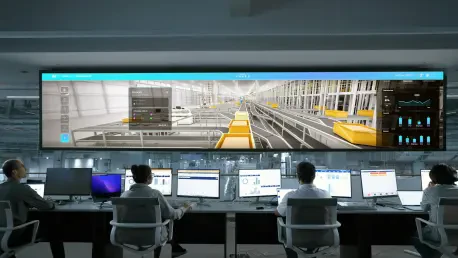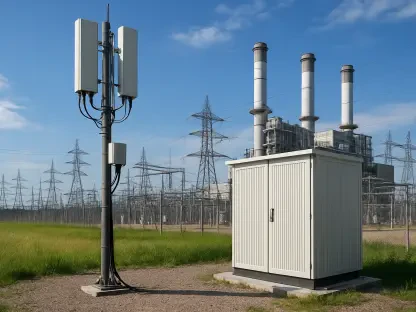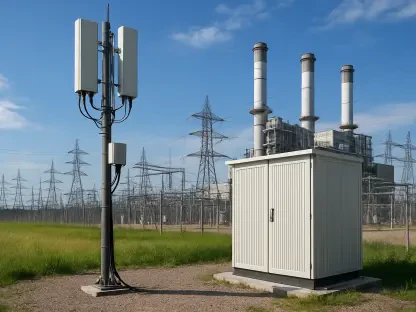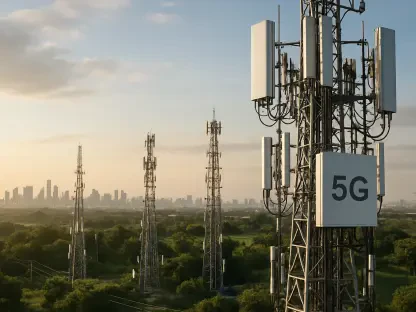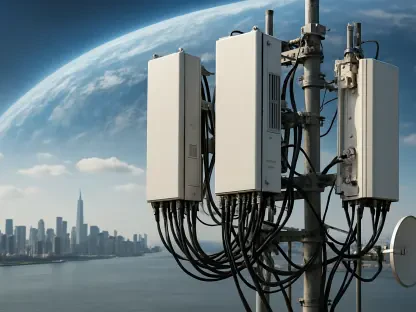In recent years, Project Blue has emerged as a focal point of controversy and debate in Tucson, Arizona, representing a complex conundrum for residents and policymakers alike. The expansive data center project, driven by Amazon Web Services (AWS), is poised for development on a sprawling 290-acre site near the city. Believed by its developers to be a cornerstone for economic fortification, Project Blue stands as a potential titan in Tucson’s economic landscape, promising job creation and technological advancement. Nevertheless, beneath its allure lies a string of contentious issues, ranging from environmental degradation to governmental transparency, raising questions about the net benefits this project will ultimately yield for the local community. The balance between harnessing economic opportunities and safeguarding environmental integrity presents a formidable challenge, fueling divergent perceptions and expectations.
Economic Prospects vs. Environmental Concerns
The promise of economic growth has positioned Project Blue as a vibrant part of Tucson’s future development plans. At its core is the allure of around 180 new jobs catering to diverse skills, from technical experts to administrative roles. Furthermore, the presence of a prominent enterprise like AWS is anticipated to act as a catalyst, drawing tech enthusiasts and operating as a nodal point for further investments in the region. Nonetheless, despite the initial optimism, a layer of skepticism underlies these economic projections, as similar projects in different locations have not always met their promised potential, often leading to unfulfilled expectations. Such developments can experience fluctuating demand, resulting in limited job creation and transient economic enhancement.
Against the backdrop of these economic forecasts lies growing unease concerning environmental stewardship. Data centers, by their very nature, are notorious for their extensive water and energy consumption, resources that are already pressed in Arizona’s parched landscape. Given the arid climate, any additional strain on these resources could exacerbate the region’s vulnerabilities, further straining local water supplies and escalating energy demands. These factors amplify concerns about the long-term sustainability of the project, as environmental organizations and community members fear irreversible ecological impacts and landscape transformations. A critical component of this dialogue is assessing whether the touted economic advantages sufficiently outweigh potential environmental costs.
Transparency and Governance Challenges
While Project Blue champions economic aspirations, the specter of transparency and governance looms large, casting shadows over its potential approval and progress. It was only through a 2023 county memo that the responsible entity behind Project Blue, AWS, was revealed. Prior to this disclosure, confidentiality agreements camouflaged the developer’s identity, presenting a barrier to public insight and engagement. County officials have cited non-disclosure agreements to justify the secrecy, yet this stance has been met with staunch resistance and criticism from both public figures and citizens. This opacity not only undermines public trust but also challenges democratic accountability, initiating a broader dialogue on the appropriateness of such secrecy in governmental agreements.
In providing a platform for community perspectives, Mayor Regina Romero has vocalized apprehensions regarding the implications of such secrecy on public confidence and transparency. She, alongside council members Kevin Dahl and Paul Cunningham, has spearheaded opposition grounded in the erosion of trust and the necessity for purer forms of engagement between developers and the community. This stance highlights overarching governance challenges that extend beyond Project Blue, encompassing broader concerns over the integrity of corporate and governmental interactions. The dynamic between secrecy and transparency provokes a critical conversation about the obligation to uphold democratic processes.
Regulatory Reforms and Community Advocacy
The Project Blue discourse intertwines with broader regional movements towards refining regulatory frameworks surrounding data centers. Recognized as a domain of evolving interest, policymakers in areas such as Phoenix have undertaken initiatives to fortify zoning requirements and permitting processes, endeavoring to harmonize technological growth with ecological preservation. Such regulatory momentum acknowledges the imperative of aligning economic ambitions with environmental conservation goals. By advocating for sensible regulations, authorities aim to buffer against unmitigated exploitation of natural resources while bolstering sustainable development approaches.
Local governing bodies and community groups have emerged as pivotal stakeholders in shaping this regulatory agenda. Notably, Pima County Supervisor Jen Allen has been an advocate for initiatives targeting stronger regulatory controls and oversight mechanisms to curb any adverse impacts stemming from data center operations. By foregrounding community voices, her efforts exemplify the indispensable influence of collective action and advocacy in driving policy reforms. As these discussions continue to unfold, they underscore the significant role that community engagement and advocacy play in steering the trajectory of large-scale development projects while safeguarding local interests.
Community Perspectives and Future Considerations
The divergent viewpoints on Project Blue reflect the intricate web of motivations, expectations, and concerns that define Tucson’s societal fabric. Among proponents, the project is envisioned as a promising economic engine poised to invigorate regional prosperity and enhance Tucson’s tech landscape. However, within circles of opposition, reservations linger regarding the tangible benefits the development will extend to the community, coupled with pressing apprehensions over environmental sustainability. This divergence encapsulates broader national debates about the intersection of technological innovation and communal obligations, echoing themes of economic viability versus environmental stewardship.
It remains imperative to deliberate on future pathways that reconcile these seemingly conflicting priorities. The success of Project Blue will be contingent upon effective harmonization of economic imperatives with environmental responsibilities and fostering a climate of transparency and accountability. Stakeholders vested in the region’s future, from policymakers to community advocates, must engage in constructive dialogue to navigate these tensions and establish a framework for responsible development. As Tucson stands at a crossroads, prioritizing sustainable practices, fostering open communication, and forging collaborative partnerships are prerequisites for realizing a future that embraces the dual objectives of economic vitality and environmental resilience.
Forging a Path Forward
Project Blue holds promise as a key component of Tucson’s future economic landscape. It offers the potential for around 180 new jobs, spanning a broad skill spectrum, from technical experts to administrative positions. The involvement of a substantial player like AWS is expected to serve as a catalyst, potentially attracting tech-savvy professionals and drawing further investments to the area. However, despite the initial optimism, there’s a shadow of doubt surrounding these projections, as similar projects elsewhere have sometimes fallen short of expectations, offering limited job opportunities and fleeting economic growth instead.
Amid these economic forecasts is an increasing concern about environmental responsibility. Data centers, by their design, are known for extensive water and energy use, which poses a significant challenge in Arizona’s dry climate. The region’s limited water resources could become overstrained, and energy demands might rise sharply, raising alarms about the project’s long-term sustainability. Community members and environmental advocates worry about possible irreversible ecological damage and drastic landscape changes. A vital question lingers: Do the anticipated economic benefits justify the possible environmental costs? Balancing economic growth while safeguarding environmental resources remains a pressing debate in deciding the true impact of Project Blue on Tucson’s future.
